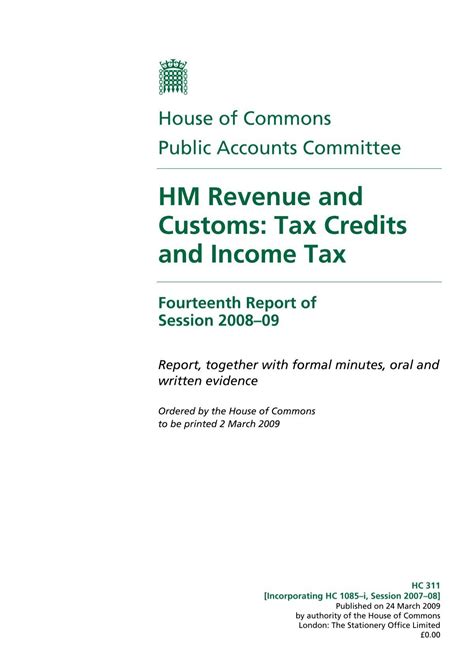If you are a UK taxpayer, you may be due a tax rebate from HM Revenue and Customs (HMRC). Whether you’ve overpaid tax through your employment, paid too much tax on savings, or incurred expenses related to your job, understanding how to claim your tax rebate can help you unlock significant savings. This guide will walk you through the process, providing essential tips and information to make your HMRC tax rebate claim as straightforward as possible.
What is a Tax Rebate?
A tax rebate is a refund of overpaid tax. It can occur for various reasons, including changes in employment status, personal circumstances, or simply because your tax code has been miscalculated. Many people do not realize they are eligible for a rebate, making it crucial to understand how HMRC operates when it comes to tax collections.
Who is Eligible for a Tax Rebate?
Various groups may be eligible for a tax rebate under different circumstances:
- Employees: If you have been employed and you paid too much tax during the year.
- Self-Employed Individuals: If you have self-assessed your income and paid too much tax.
- Students: If you worked during your studies and paid tax on your earnings.
- Pensioners: Those who may have overpaid tax on their pensions.
- Individuals with Expenses: If you have incurred work-related expenses that were not reimbursed by your employer.
Common Reasons for Overpayment
Understanding why you may have overpaid can help you prepare your case when making your claim. Here are some common reasons:
- Wrong Tax Code: A common pitfall leading to excess taxation.
- Job Changes: Switching jobs can lead to discrepancies in tax deductions.
- Claiming Job Expenses: If you haven’t claimed the expenses associated with your job.
- Leave of Absence: Any changes in your employment schedule that affect your income.
- Multiple Income Streams: Multiple jobs can complicate tax calculations.
How to Claim Your Tax Rebate
The process for claiming a tax rebate can be straightforward if you follow these steps:
Step 1: Gather Necessary Documentation
Collect all relevant documents including:
- Your P60 or P45 forms.
- Pay slips from your primary and secondary jobs.
- Details of any expenses you’ve incurred as part of your job.
- Proof of any allowances or benefits you received during the tax year.
Step 2: Check Your Tax Code
Ensure that your tax code is correct. You can find more information about your tax code on your pay slip or your P60 form. If you suspect your tax code is wrong, contact HMRC.
Step 3: Complete the Appropriate Form
You must fill out the appropriate form for your tax rebate claim. If you are employed, this would typically be the Self-Assessment Tax Return. Alternatively, if you are claiming for job-related expenses and you are not self-employed, you may use the P87 form.
Step 4: Submit Your Claim
Submit your claim online or via post to HMRC. Ensure you always have a copy for your records. The process may take some time, typically up to 8 weeks, but you can track your claim status through your personal tax account on the HMRC website.
Step 5: Await Your Refund
Once HMRC has processed your claim, they will issue a refund if you are found to be owed one. Refunds can be made via bank transfer or cheque.
Potential Pitfalls to Avoid
While the process is relatively clear-cut, several common mistakes can hinder your claim:
- Incomplete Documentation: Missing documents can lead to delays or denials.
- Incorrect Form Selection: Ensure you are using the correct form based on your employment status.
- Missing Deadlines: Be mindful of submission deadlines to avoid losing your claim.
Conclusion
Claiming your HMRC tax rebate can provide you with a welcome boost to your finances. By understanding the eligibility requirements, gathering the necessary documentation, and following the correct procedure, you can simplify the claiming process. Remember that keeping accurate records and paying attention to tax codes can prevent future overpayments, ensuring you only pay what you owe. Take the time to explore whether you’re eligible for a tax rebate, and don’t hesitate to claim funds that rightfully belong to you!
FAQs
1. How long does it take to receive my tax rebate?
Processing a tax rebate can take up to 8 weeks. If you have not received your refund after this time, consider contacting HMRC for an update.
2. Is there a fee to claim my tax rebate?
No, it is free to claim your tax rebate through HMRC. Be cautious of third-party companies that may charge fees to handle your claim.
3. Can I claim for expenses if my employer does not reimburse me?
Yes, you can claim for job-related expenses that are not reimbursed. Keep all relevant receipts and documentation to support your case.
4. What if I am self-employed?
Self-employed individuals can still claim tax rebates if they have overpaid tax. You must complete a self-assessment tax return to claim any refund due.
5. How do I check my tax code?
Your tax code can be found on your pay slip, P60, or through your online personal tax account on the HMRC website.
This HTML snippet includes the requested components, formatted according to standard HTML practices for a WordPress article.
Download Hm Revenue And Customs Tax Rebate
